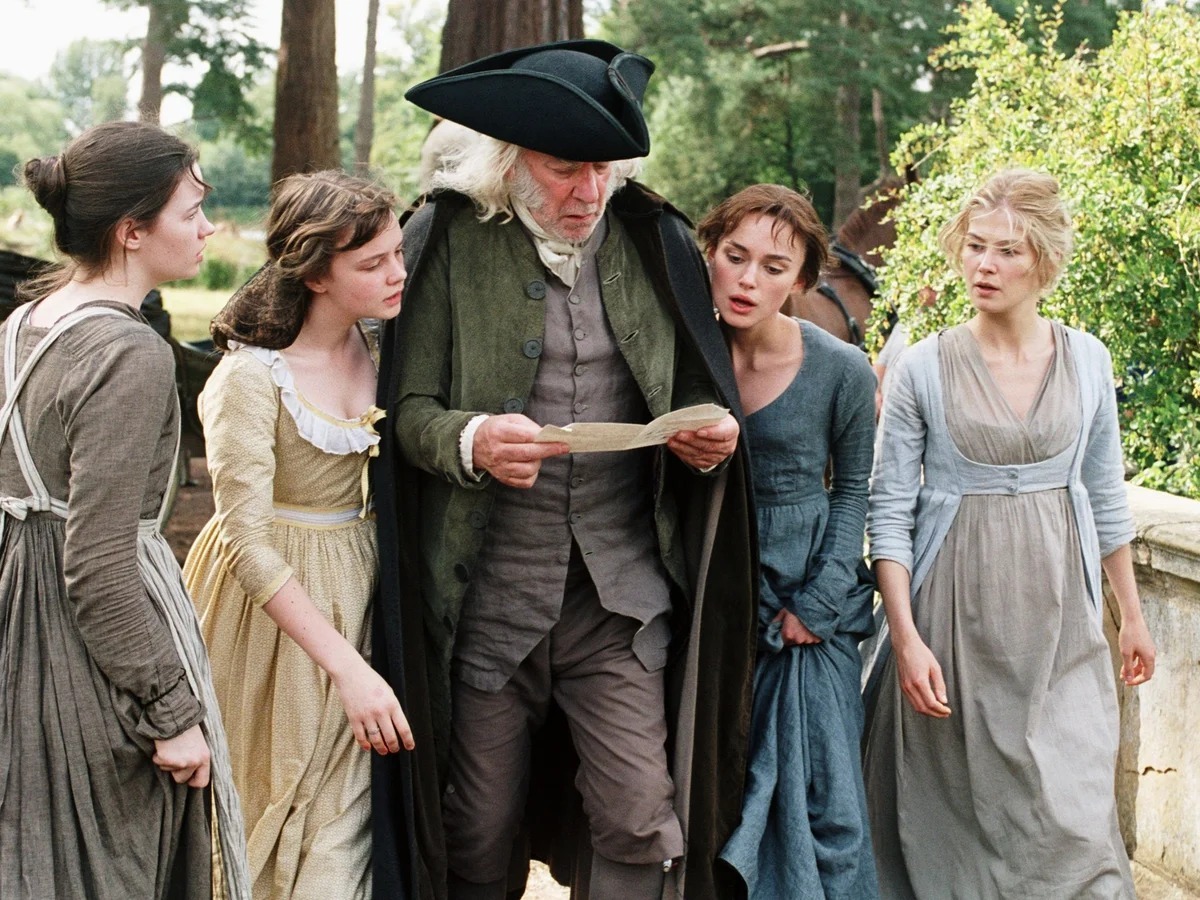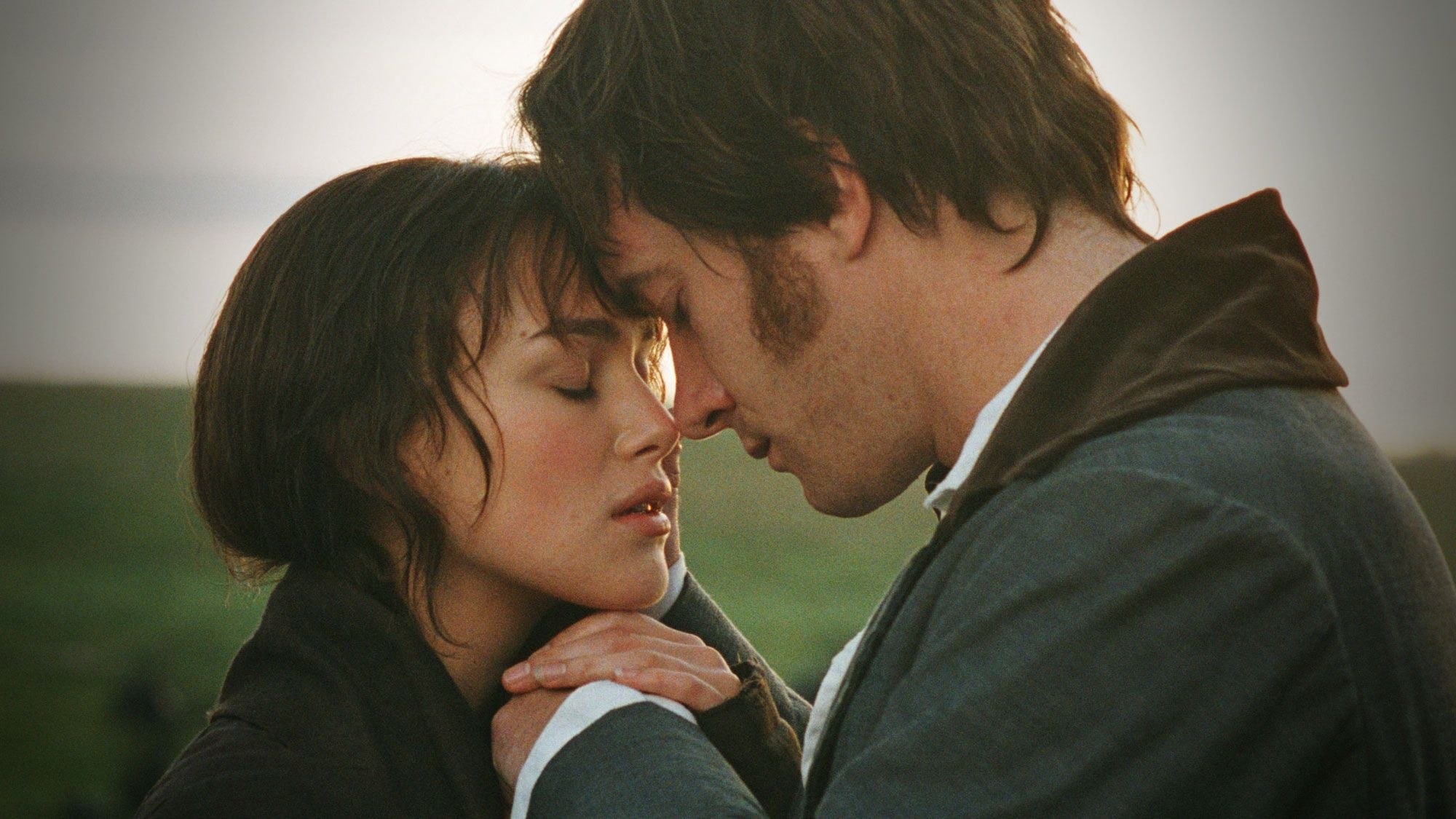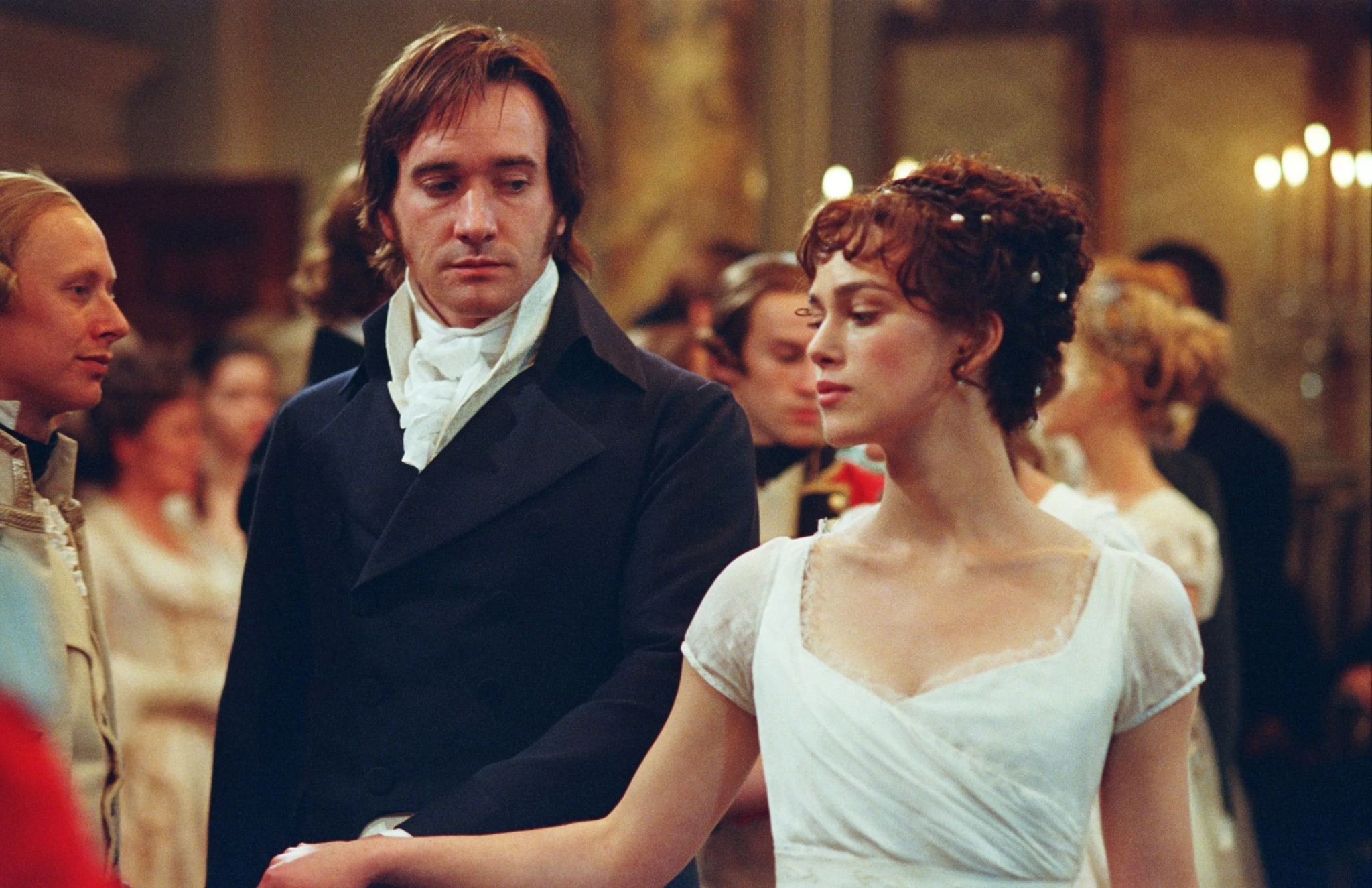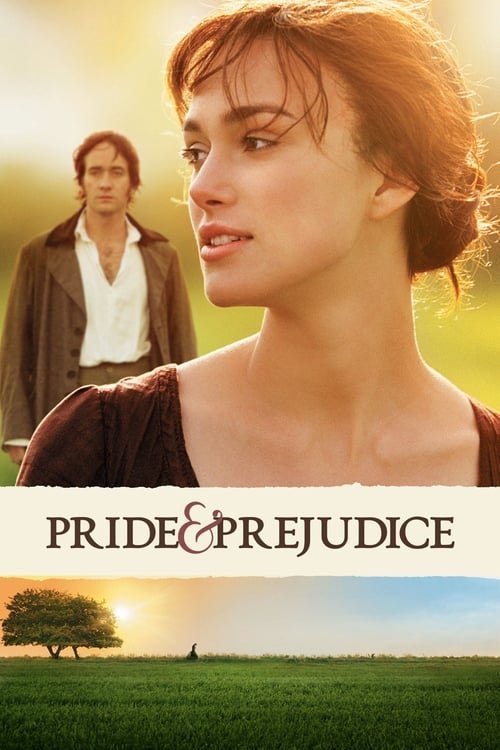Pride & Prejudice (2005)


Directed by Joe Wright, Pride & Prejudice is a breathtaking adaptation of Jane Austen’s iconic novel. Set in the early 19th century, the film artfully weaves the themes of love, class, and societal expectations against the lush backdrop of the English countryside. The story revolves around the Bennet family, particularly Elizabeth Bennet (played by Keira Knightley), whose wit, intelligence, and independence make her one of literature’s most beloved heroines. Alongside her is the reserved yet deeply complex Mr. Darcy (Matthew Macfadyen), whose initial aloofness and pride are at odds with Elizabeth’s vibrant character.
At the heart of the film is the tension between societal pressure and individual desire. The Bennet family, while respectable, faces financial and social insecurity, as Mrs. Bennet (Brenda Blethyn) is obsessed with finding wealthy suitors for her five daughters. The film begins with the arrival of wealthy bachelors Mr. Bingley (Simon Woods) and Mr. Darcy to the area, stirring excitement and anticipation. While Jane Bennet (Rosamund Pike), the eldest and gentlest daughter, quickly captures Mr. Bingley’s heart, Elizabeth’s encounters with Mr. Darcy are more contentious. Darcy’s arrogance and social superiority seem to offend Elizabeth at every turn, and their verbal sparring becomes a defining feature of the story.
Elizabeth’s intelligence and free-spirited nature clash with the restrictive societal norms of her time. Her refusal to marry for security or wealth marks her as unconventional, a stark contrast to the pressures faced by her family. When she learns that Mr. Darcy is responsible for Mr. Bingley’s sudden departure and seemingly dashed hopes for Jane, her distaste for him intensifies.

Yet, beneath Darcy’s pride lies vulnerability and a deep affection for Elizabeth. As their paths continue to intertwine, a shift occurs, revealing Darcy’s true nature. His seemingly cold demeanor hides a profound sense of duty and care, especially toward his younger sister Georgiana (Tamzin Merchant) and his willingness to protect Elizabeth’s family from scandal. Elizabeth, too, is forced to confront her own prejudice and the limitations of first impressions.


The film’s cinematography, from the misty morning walks to grand ballrooms, creates a vivid picture of the contrasting worlds Elizabeth and Darcy navigate. The delicate piano score, composed by Dario Marianelli, perfectly complements the restrained emotions and slow burn of their evolving relationship.
Ultimately, Pride & Prejudice is a celebration of the transformative power of love. Elizabeth and Darcy’s journey from mutual misunderstanding to deep admiration and respect offers a timeless commentary on the importance of looking beyond social status and appearances to discover true connection. Their final scene, where Darcy humbly declares his love for Elizabeth, marks one of the most iconic and heartfelt moments in literary adaptations.
Wright’s Pride & Prejudice stands as a visually stunning and emotionally resonant adaptation of Austen’s masterpiece, capturing the heart and wit of the original novel while breathing fresh life into its characters and themes.











